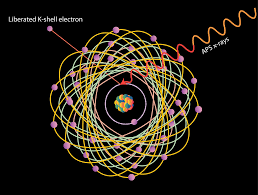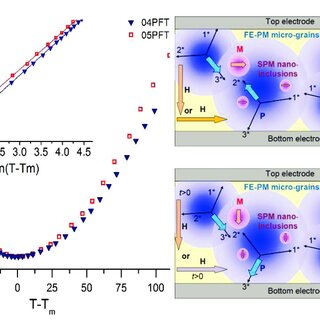The Quantum Zeno Effect: How to Freeze Time with Your Mind
The Quantum Zeno Effect, named after the ancient Greek philosopher Zeno of Elea, is a peculiar phenomenon in quantum mechanics where frequent observation of a quantum system can seemingly 'freeze' its evolution.
In classical Zeno's paradoxes, one of them is the "arrow paradox" which argues that, for motion to occur, an object must change the position which it occupies. Elea presents a scenario involving an arrow in flight. He argues that at any given moment, for the arrow to be in motion, it must either move to its current location, or it must move to where it isn’t. However, it cannot move to where it is not, because this is a single instant, and it cannot move to where it is because it is already there. In other words, in any instant of time there is no motion occurring, so, if everything is motionless at every instant, and time is entirely composed of instants, then motion is impossible.
Whereas in quantum mechanics, the Quantum Zeno Effect refers to the situation where an unstable particle, if observed continuously, will never decay. The progression of the system can be ‘halted’ by conducting frequent measurements in its recognized initial state
The connection between the Quantum Zeno Effect and the concept of 'freezing time' comes from this idea. If a system is prevented from evolving in time due to constant observation, it's almost as if time itself has been frozen for that particular system. This doesn't mean that time in general has stopped or that clocks would stop ticking, but rather that the progression from one state to another within our observed quantum system has been halted.
In classical Zeno's paradoxes, one of them is the "arrow paradox" which argues that, for motion to occur, an object must change the position which it occupies. Elea presents a scenario involving an arrow in flight. He argues that at any given moment, for the arrow to be in motion, it must either move to its current location, or it must move to where it isn’t. However, it cannot move to where it is not, because this is a single instant, and it cannot move to where it is because it is already there. In other words, in any instant of time there is no motion occurring, so, if everything is motionless at every instant, and time is entirely composed of instants, then motion is impossible.
Whereas in quantum mechanics, the Quantum Zeno Effect refers to the situation where an unstable particle, if observed continuously, will never decay. The progression of the system can be ‘halted’ by conducting frequent measurements in its recognized initial state
The connection between the Quantum Zeno Effect and the concept of 'freezing time' comes from this idea. If a system is prevented from evolving in time due to constant observation, it's almost as if time itself has been frozen for that particular system. This doesn't mean that time in general has stopped or that clocks would stop ticking, but rather that the progression from one state to another within our observed quantum system has been halted.
In quantum mechanics, particles such as atoms or photons can exist in multiple states at once, a property known as superposition. For example, an atom might be in a superposition of two states: decayed and not decayed. The state of the particle is described by a mathematical object called a wave function.
When a particle is not being observed, it evolves over time according to the Schrödinger equation, and its wave function can spread out over multiple states. However, when we observe the particle, we only see it in one of these states. This is known as wave function collapse: the wave function 'collapses' from a superposition of many states to just one state.
The Quantum Zeno Effect comes into play when we make repeated observations of the particle. Each time we observe the particle, its wave function collapses. If we observe the particle quickly enough, before it has a chance to evolve into a superposition of 'decayed' and 'not decayed' states, we will always find it in the 'not decayed' state. In other words, frequent observation can prevent the particle from decaying.
This is a very counterintuitive result and is one of the many ways in which quantum mechanics differs from classical physics. It's as if by constantly watching a pot, we can prevent it from boiling! This doesn't mean that time itself has stopped or that clocks would stop ticking, but rather that the progression from one state to another within our observed quantum system has been halted.
It's important to note that this doesn't involve any conscious observer or any mystical influence of mind over matter. The 'observation' in quantum mechanics can be any interaction that entangles the state of the particle with some external system.
The Quantum Zeno Effect has several real-world applications and implications. For instance, it can be used in control of decoherence, quantum error correction, and state preparation⁵. Decoherence is a major obstacle in the development of quantum computers, and the Quantum Zeno Effect could potentially help to mitigate this problem. In quantum error correction, the Quantum Zeno Effect could be used to stabilize quantum states against errors. In state preparation, it could be used to prepare quantum systems in specific states.
There have been several notable experiments related to the Quantum Zeno Effect. One of the most often cited is the experiment by Itano, Heinzen, Bollinger, and Wineland, published in 1990. More recently, researchers from Cornell found ways to use the Quantum Zeno Effect to freeze the tunneling of atoms—a phenomenon that usually occurs when atoms are exposed to extremely cold temperatures. Another experiment demonstrated that Zeno-type measurements enable the control of the joint evolution of two non-interacting quantum systems (qubits) entangling them.
These experiments not only confirm the existence of the Quantum Zeno Effect but also open up new possibilities for its application in quantum computing and other areas of quantum technology.
There have been several notable experiments related to the Quantum Zeno Effect. One of the most often cited is the experiment by Itano, Heinzen, Bollinger, and Wineland, published in 1990. More recently, researchers from Cornell found ways to use the Quantum Zeno Effect to freeze the tunneling of atoms—a phenomenon that usually occurs when atoms are exposed to extremely cold temperatures. Another experiment demonstrated that Zeno-type measurements enable the control of the joint evolution of two non-interacting quantum systems (qubits) entangling them.
These experiments not only confirm the existence of the Quantum Zeno Effect but also open up new possibilities for its application in quantum computing and other areas of quantum technology.
The role of consciousness in quantum physics is a topic of ongoing debate and research. Some theories propose that classical mechanics alone cannot explain consciousness, suggesting that quantum-mechanical phenomena, such as entanglement and superposition, may play an important part in the brain's function and could explain critical aspects of consciousness. One of the most prominent theories of quantum consciousness is orchestrated objective reduction (Orch-OR theory), which posits that microtubules within neurons are responsible for mediating the collapse of the wave function and the emergence of conscious experience.
However, it's important to note that these hypotheses are still awaiting useful scientific tests. A number of researchers propose that consciousness is produced by quantum events, yet this hypothesis awaits empirical verification.
As for the concept of 'watching' or 'observing' in quantum physics, it does not necessarily require a conscious observer. In quantum mechanics, an observation could be a molecular change induced by a scattering or absorption. The term "observer" in quantum mechanics refers to any interaction that entangles the state of the particle with some external system. This could be another particle, a measuring device, or even a human being. But the key point is that the 'observation' is about interaction and entanglement, not conscious awareness.
However, it's important to note that these hypotheses are still awaiting useful scientific tests. A number of researchers propose that consciousness is produced by quantum events, yet this hypothesis awaits empirical verification.
As for the concept of 'watching' or 'observing' in quantum physics, it does not necessarily require a conscious observer. In quantum mechanics, an observation could be a molecular change induced by a scattering or absorption. The term "observer" in quantum mechanics refers to any interaction that entangles the state of the particle with some external system. This could be another particle, a measuring device, or even a human being. But the key point is that the 'observation' is about interaction and entanglement, not conscious awareness.
In conclusion, the Quantum Zeno Effect is a fascinating phenomenon in quantum mechanics that demonstrates how the act of observation can seemingly ‘freeze’ the evolution of a quantum system. This effect, which is deeply rooted in the principles of wave function collapse and superposition, serves as a bridge between the abstract world of quantum physics and our everyday reality.
Throughout this exploration, we’ve seen how the Quantum Zeno Effect has real-world applications and implications, from controlling decoherence to aiding in quantum error correction. We’ve also touched upon the ongoing debate about the role of consciousness in quantum physics and whether ‘watching’ or ‘observing’ in quantum physics requires a conscious observer.
The world of quantum physics is complex and often counterintuitive, but it holds the potential to revolutionize our understanding of the universe. As we continue to unravel its mysteries, who knows what exciting discoveries await us? The Quantum Zeno Effect is just one piece of this vast puzzle.
So, keep exploring, keep questioning, and keep learning. After all, as Richard Feynman once said, ‘Physics is like sex: sure, it may give some practical results, but that’s not why we do it.’ Here’s to the joy of discovery in the fascinating world of quantum physics!
Throughout this exploration, we’ve seen how the Quantum Zeno Effect has real-world applications and implications, from controlling decoherence to aiding in quantum error correction. We’ve also touched upon the ongoing debate about the role of consciousness in quantum physics and whether ‘watching’ or ‘observing’ in quantum physics requires a conscious observer.
The world of quantum physics is complex and often counterintuitive, but it holds the potential to revolutionize our understanding of the universe. As we continue to unravel its mysteries, who knows what exciting discoveries await us? The Quantum Zeno Effect is just one piece of this vast puzzle.
So, keep exploring, keep questioning, and keep learning. After all, as Richard Feynman once said, ‘Physics is like sex: sure, it may give some practical results, but that’s not why we do it.’ Here’s to the joy of discovery in the fascinating world of quantum physics!
Tags:
PHYSICS




